
Alexander Grant MacKay was a Canadian teacher, lawyer and provincial level politician. He served prominent posts in two provincial legislatures as Leader of the Opposition in Ontario and as a Cabinet Minister in Alberta.
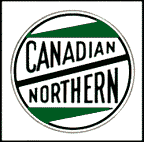
The Canadian Northern Railway (CNoR) was a historic Canadian transcontinental railway. At its 1923 merger into the Canadian National Railway, the CNoR owned a main line between Quebec City and Vancouver via Ottawa, Winnipeg, and Edmonton.

George Hedley Vicars Bulyea was a Canadian politician and the first Lieutenant Governor of Alberta. As the youngest ever Lieutenant Governor, at age 46, he was appointed by Governor General Earl Grey on advice of Prime Minister of Canada Sir Wilfrid Laurier on September 1, 1905.

Old Strathcona is a historic district in south-central Edmonton, Alberta, Canada. Once the commercial core of the separate city of Strathcona, the area is now home to many of Edmonton's arts and entertainment facilities, as well as a local shopping hub for residents and students at the nearby University of Alberta. The district centres on Whyte Avenue and has shops, restaurants, bars and buskers.

The Cincinnati, Hamilton and Dayton Railway (CH&D) was a railroad based in the U.S. state of Ohio that existed between its incorporation on March 2, 1846, and its acquisition by the Baltimore and Ohio Railroad in December 1917. It was originally chartered to build from Cincinnati to Hamilton, Ohio, and then to Dayton, a distance of 59 mi (95 km); further construction and acquisition extended the railroad, and by 1902 it owned or controlled 640 mi (1,030 km) of railroad. Its stock and bond value plunged in late 1905 after "financial mismanagement of the properties" was revealed. The company was reorganized as the Toledo and Cincinnati Railroad in 1917.

The 1st Alberta Legislative Assembly was in session from November 9, 1905, to Monday, March 22, 1909, with the membership of the assembly determined by the results of the 1905 Alberta general election which was held on November 9, 1905. The Legislature officially began on November 9, 1905, and continued until the fourth session was prorogued on February 25, 1909, and dissolved the next day on February 26, 1909, prior to the 1909 Alberta general election.

Francis Oliver was a Canadian federal minister, politician, and journalist/publisher from the Northwest Territories and later Alberta. As Minister of the Interior, he was responsible for discriminatory Canadian government policies that targeted First Nations' land rights and Black immigration.
Strathcona was a city in Alberta, Canada on the south side of the North Saskatchewan River. Originally founded in 1891, it amalgamated with the City of Edmonton in 1912.
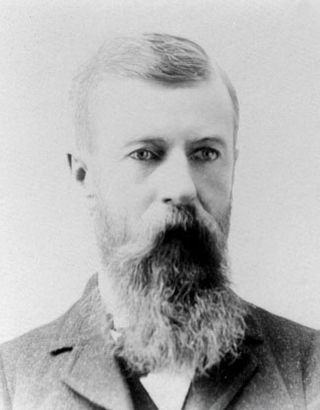
John Cameron[n1] was a merchant and politician in Alberta, Canada and a municipal councillor in Edmonton. He is regarded as one of the city's pioneer citizens.
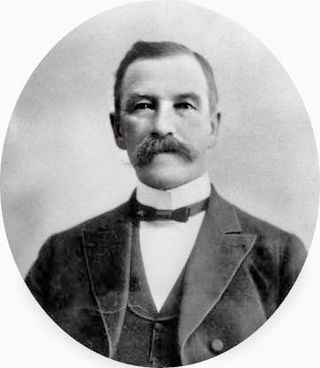
Thomas Bellamy was a politician in Alberta, Canada and a municipal councillor in Edmonton.
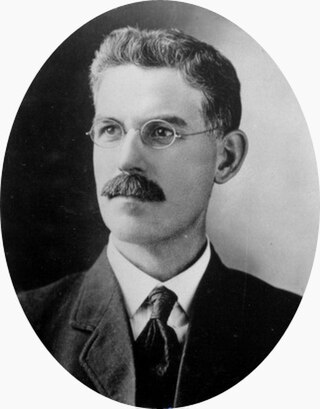
George Seale Armstrong was a Canadian businessman and politician. He served on the Edmonton City Council from 1907 to 1910 and as Mayor of Edmonton from 1910 to 1912.

Gustave Henry May was a photographer and politician in Alberta, Canada. He co-operated the first photo-engraving business in western Canada and served on the Edmonton City Council from 1912 until 1914.
William Smith (Bill) Ziegler CBE, DSO, ED was a Canadian General officer active in World War II.
The Papaschase are a group of Cree people descended from Chief Papaschase's Band of the 19th century, who were a party to Treaty 6 with Canada. A modern-day group of Papaschase descendants are working to advance their treaty rights and reclaim their reserve's land or get compensation for its loss. They claim the reserve was surrendered unlawfully in 1888, but they have not been recognized yet by the Canadian Government Alexander First Nation #134 #134a #134b #143
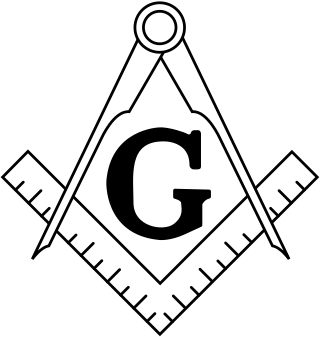
Freemasonry is a fraternal organisation that arose from the loose organization of medieval masons working in the medieval building industry.
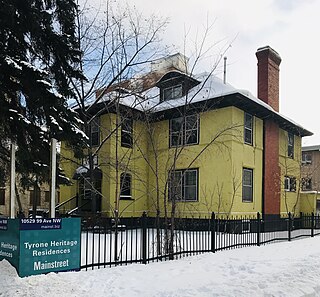
Tyrone Heritage Residences is a heritage building in Edmonton, Canada, best known as the former home of Alberta's third Premier, Charles Stewart.












